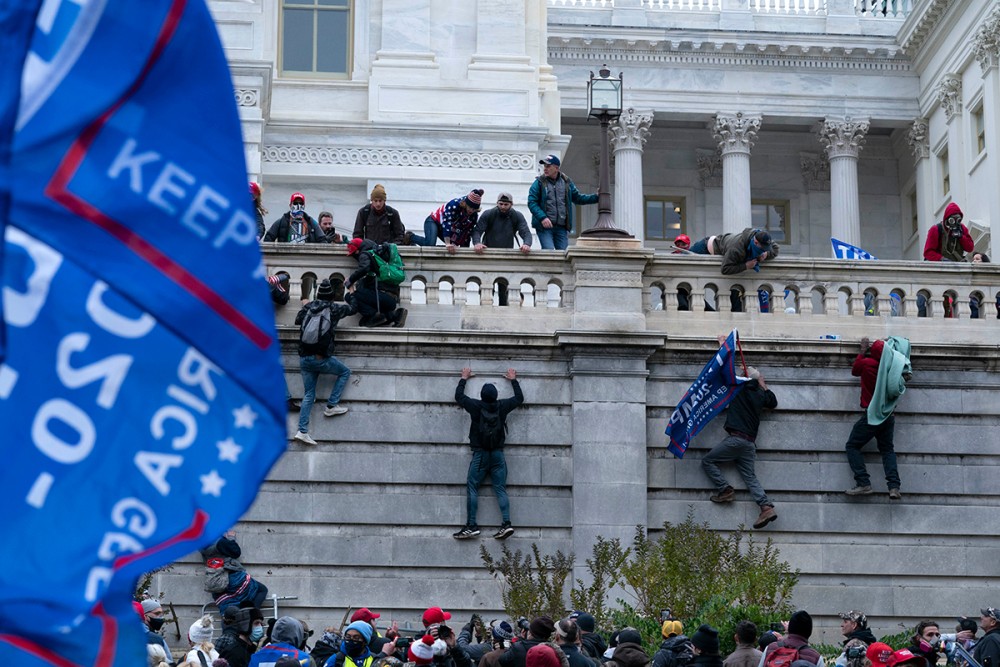At the US Capitol, pro-Trump extremists laid siege to democracy
Democracy is fragile. But the things that make it fragile are the same things that give it power.

“The framers built the Senate to stop short-term passions from boiling over and melting the foundations of our republic,” said Senate Majority Leader Mitch McConnell, just minutes before a mob of insurrectionists stormed into the Capitol building yesterday to prevent Congress from certifying the results of the November presidential election. It looked as though some of the republic’s foundations were melting away as rioters assaulted police officers, vandalized government property, destroyed journalists’ equipment, and displayed the Confederate flag inside the Capitol. Four people died, and 14 law enforcement officials were injured.
But the passions that fueled this violence were not short term, nor were they new. White supremacy—overtly flaunted by many of the rioters and noted by many observers in the police’s mild initial response—has been baked into our nation since its founding. The right’s longstanding distrust of the news media has been weaponized by President Trump, who has spent years demonizing journalists and undermining their work with lies and conspiracy theories. The integrity of our electoral process—symbolized by those boxes of electoral votes that Senate staff members hid from the mob—has been weakened for decades by voter suppression and gerrymandering.
Yesterday was the Feast of the Epiphany, and for many Americans the insurrection at the Capitol was an epiphany: an unveiling of the sins that brew underneath our institutions and within our hearts. But it was more than that. It was a deliberate attempt, incited by a sitting president, to defy the Constitution by subverting the will of the electorate. The fact that it happened so easily—as the natural culmination of a presidency driven by self-interest, fed by anger, and enabled by moral weakness—shows how fragile democracy is.




